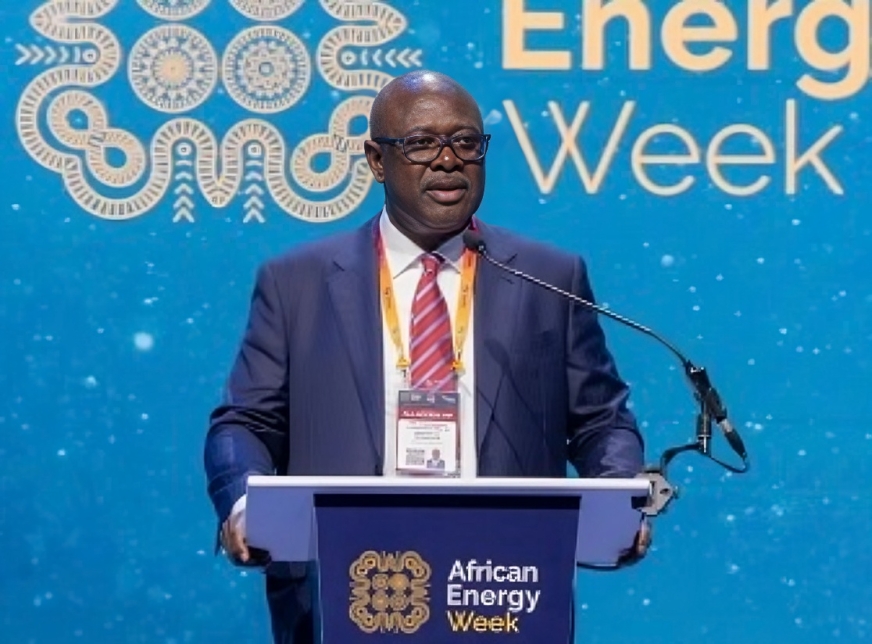KEY POINTS
- Nigeria oil sector gains $5.5 billion from IOC divestments.
- Divestments added 200,000 barrels per day to crude output.
- Local operators now play a larger role in production.
Nigeria’s oil sector is seeing a surge of investment and higher production following recent divestments by international oil companies, according to the government.
Minister of State for Petroleum Resources (Oil), Heineken Lokpobiri, said the asset transfers have injected $5.5 billion in new capital while adding 200,000 barrels per day to national output.
Lokpobiri, speaking in Cape Town at the Africa Energy Week on behalf of President Bola Tinubu, framed the shift as a turning point for the country’s petroleum industry.
He said the changes were more than financial transactions. They represented confidence, capability, and a stronger sense of local ownership.
IOC divestments drive crude oil growth
Over the past three years, Shell, ExxonMobil, and Chevron have offloaded onshore and shallow-water assets as part of their global strategy to concentrate on deepwater projects.
Their exits opened space for Nigerian companies including Seplat Energy, Oando, and Heirs Holdings to expand their holdings and raise domestic participation in the sector.
According to Lokpobiri, the impact has been immediate. The divestments alone unlocked $5.5 billion in final investment decisions within months. Production gains of 200,000 barrels a day have been recorded, underscoring the pace at which new operators are mobilizing assets.
Nigeria pushes oil sector reforms
Tinubu’s administration has tied these developments to broader reforms under the Petroleum Industry Act. The law has introduced clearer fiscal terms, stronger regulatory oversight, and transparent host community engagement. Officials say the framework is now encouraging long-term capital flows that were previously stalled.
Nigeria’s upstream drive is also supported by the “Project One Million Barrels” initiative, launched by the Nigerian Upstream Petroleum Regulatory Commission. Crude production climbed to between 1.7 and 1.83 million barrels per day this year, with a record 300,000-barrel increase in July alone. The number of active drilling rigs also rose from 31 in January to 50 by July 2025, signaling renewed confidence in the sector.
Lokpobiri told investors that Nigeria is “open for business” and committed to balancing oil development with broader energy reforms. He emphasized Africa’s need to retain more value from hydrocarbons, pointing to the $120 billion spent annually on imports. With $4 trillion in domestic capital held by pension and insurance funds, he argued, the challenge is not funding but channeling resources into productive energy projects.
The minister added that Nigeria would continue to exploit its oil responsibly while investing in a diversified energy mix. He invited global investors to take part, saying reforms, consistency, and incentives were reshaping the sector.



